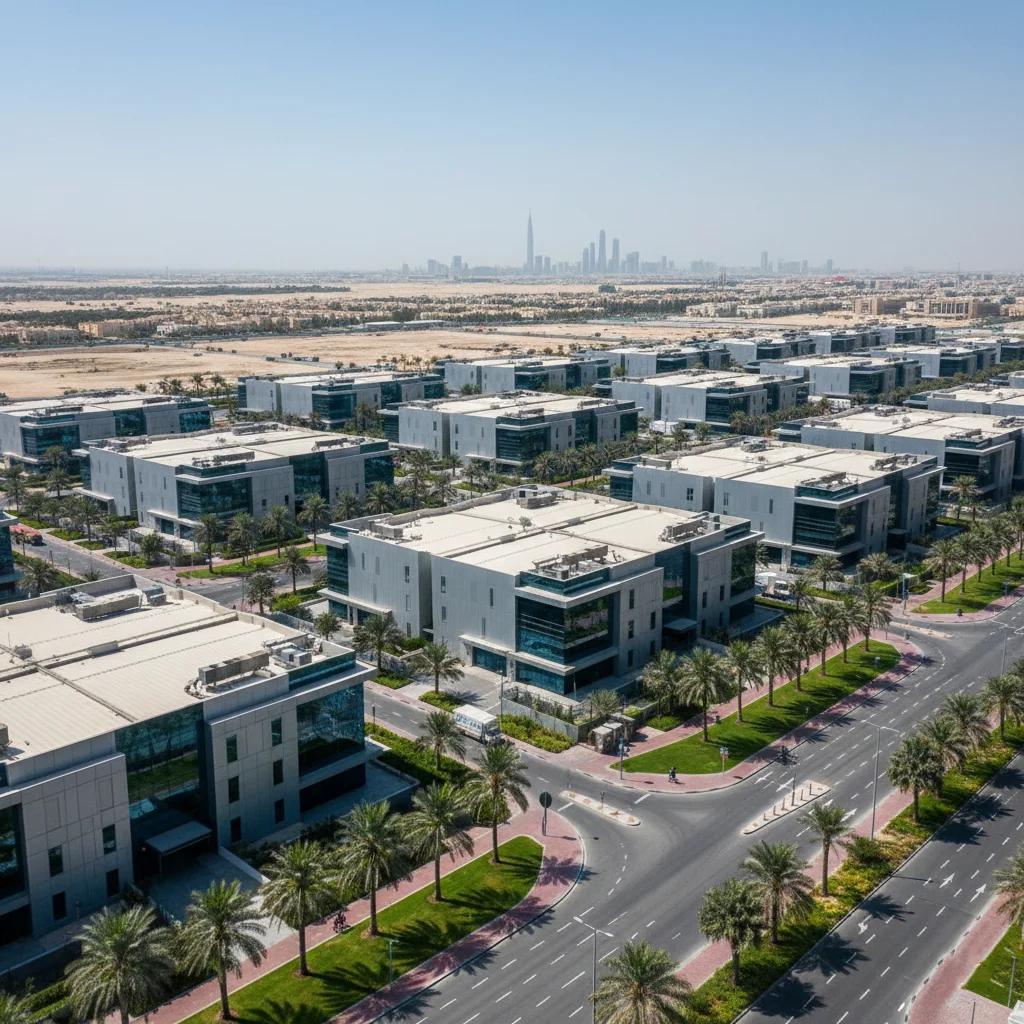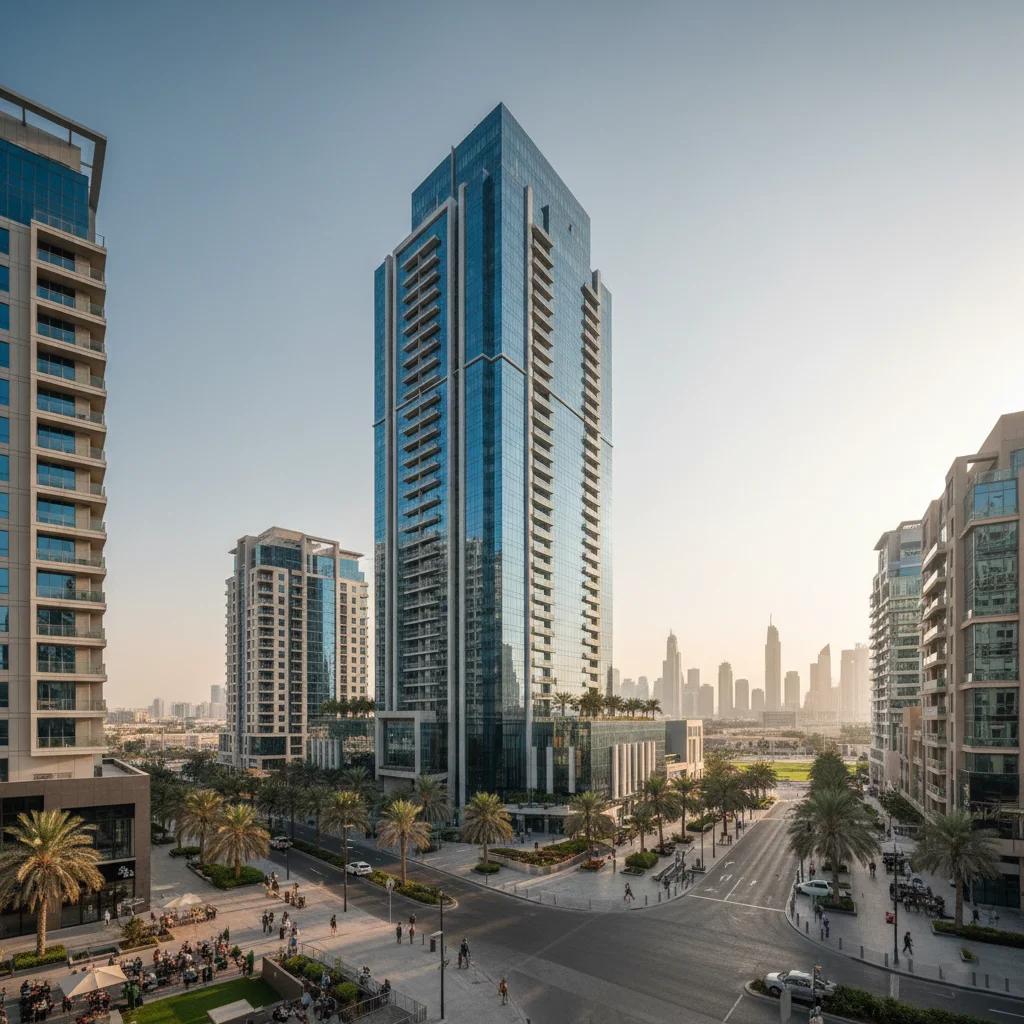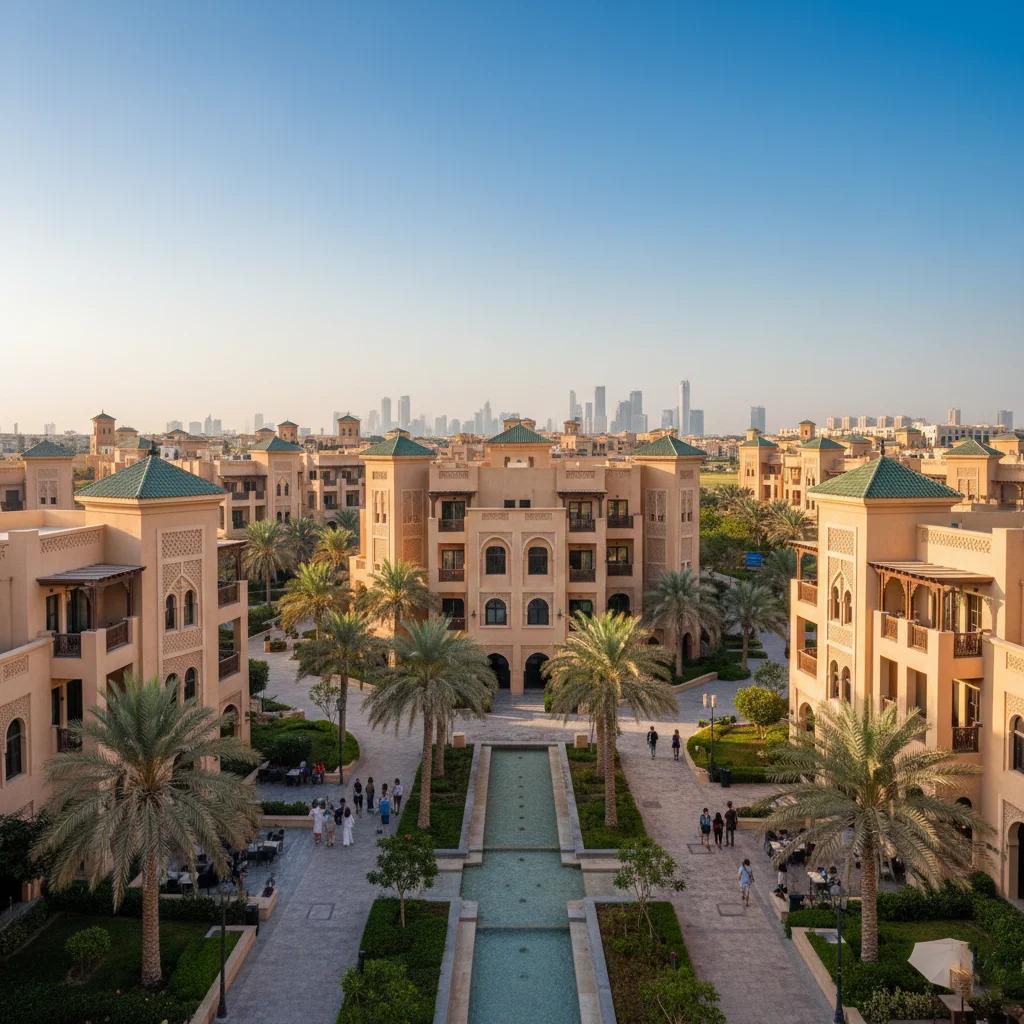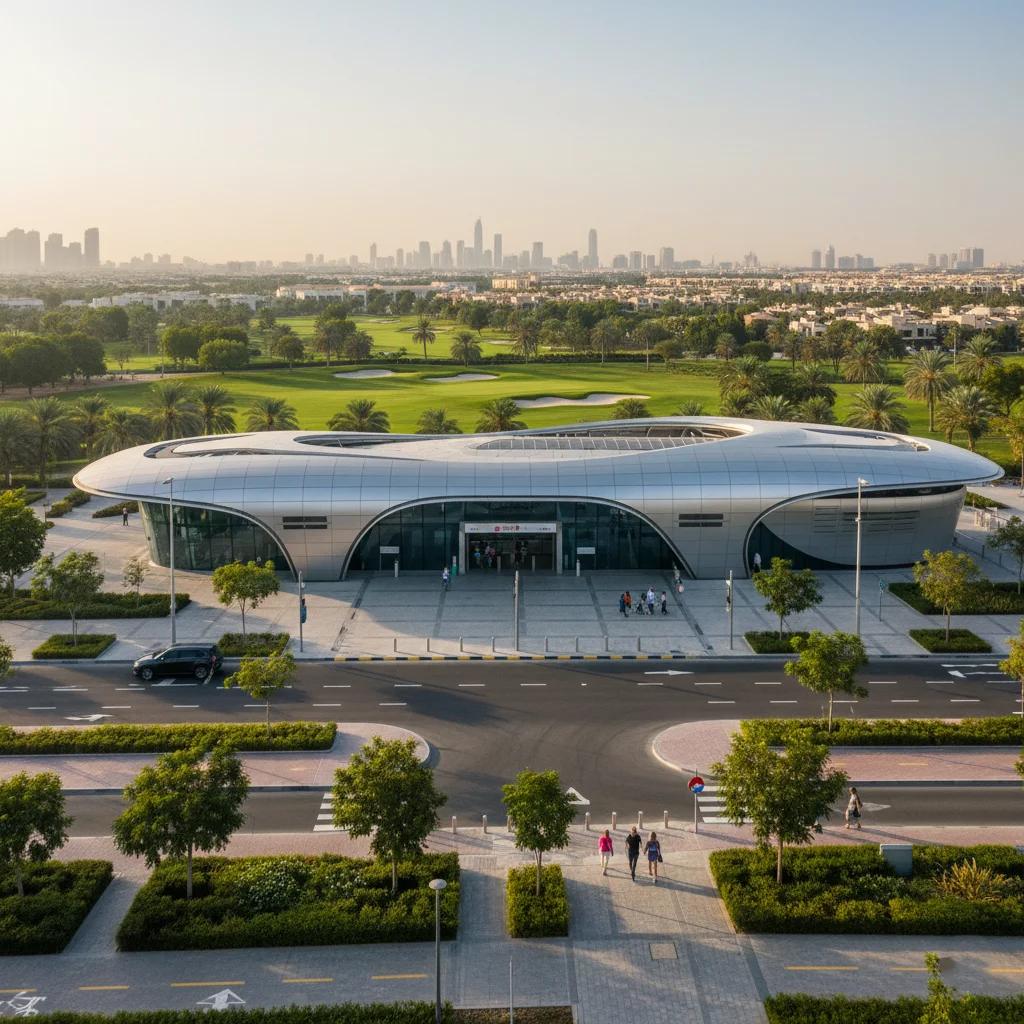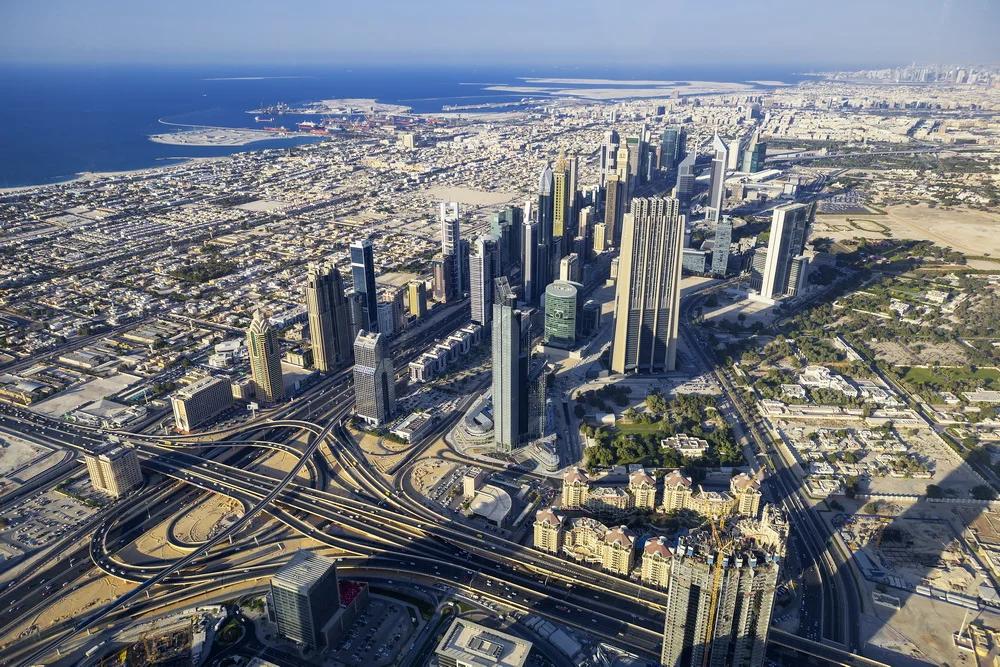
Complete Guide to Real Estate Investment in the UAE for Locals and Foreigners
Investing in real estate in the UAE is becoming increasingly attractive for both local and foreign investors. The country's thriving economy, tax-free environment, and ongoing real estate projects make it one of the top destinations for property investment. This guide will help you understand the essential requirements for estate investment, as well as the factors to consider when navigating the UAE’s real estate market.
Why Invest in Real Estate in the UAE?
The UAE offers a dynamic and fast-growing real estate market with high returns for investors. Thanks to its strong economy, strategic location, and long-term vision, the UAE is a prime choice for property investors looking to secure both immediate rental income and capital appreciation. With key areas like Dubai and Abu Dhabi leading the charge, the real estate sector here provides a variety of opportunities for investors, from residential apartments to commercial spaces. Additionally, the tax-free environment ensures that more of your profits stay in your pocket, making property in Dubai and other emirates a smart financial move.
Types of Real Estate Investments
The UAE offers several types of real estate investments, each with its own set of advantages:
1. Residential Properties:
These are the most common types of investments, with options ranging from studio apartments to luxury villas. Residential properties offer stable rental returns and are a popular choice for foreign investors looking for long-term income.
Here are some statistics:
- The residential real estate market in the UAE is projected to reach a value of US$0.39 trillion by 2024.
- Residential real estate accounts for around 5.5% of the UAE's overall GDP.
- In Dubai, residential property prices increased by 21.3% year-on-year in the year to June 2024.
2. Commercial Properties:
Office spaces and retail units are in demand due to the UAE’s status as a global business hub. Investing in commercial property can provide higher returns compared to residential, particularly in business districts like Business Bay and DIFC in Dubai.
Here are some statistics:
- Office rents in Abu Dhabi's Prime, Grade A, and Grade B segments registered year-on-year increases of 9.1%, 7.4%, and 14.5%, respectively, in Q2 2024.
- Dubai's retail rents increased by 6.0% year-on-year in Q2 2024.
3. Industrial Properties:
Warehouses, factories, and logistics centers are growing in demand as the UAE continues to position itself as a global trade and logistics hub. Investors looking for long-term growth can find significant opportunities here.
Here are some statistics:
- Average rents in Abu Dhabi's industrial and logistics market increased by 4.7% year-on-year in Q2 2024.
- In Dubai, average rents in the industrial and logistics market grew by 10.6% year-on-year in Q2 2024.
4. Hospitality Properties:
Hotels and serviced apartments in high-tourism areas offer attractive returns, especially in Dubai, a city known for its booming tourism industry.
Here are some statistics:
- The average occupancy rate across the UAE increased by 1.7 percentage points year-on-year in the year to date to June 2024.
Important Factors to Consider Before Investing in UAE Real Estate
1. Location:
Location is a critical factor in real estate investment. Properties in prime areas like Dubai and Abu Dhabi typically provide higher returns, both in terms of rental income and property appreciation. It’s also important to consider:
- Proximity to essential services: Schools, hospitals, transportation hubs, and retail centers can significantly impact the desirability of a property.
- Neighborhood development: Understanding future infrastructure projects, such as new metro lines or shopping malls, can influence the long-term value of a property.
2. Market Conditions:
Understanding the real estate market’s supply and demand dynamics is crucial to making informed decisions. Keep an eye on:
- Supply of new developments: Areas with many new projects can face oversupply, which may affect rental yields.
- Economic factors: Changes in economic indicators, such as interest rates and employment levels, can have a direct impact on property values.
3. Property Condition:
The condition of a property should always be a priority for investors:
- Assess any potential repairs or renovations: These can add significant costs, impacting your overall return on investment (ROI).
4. Legal and Regulatory Environment:
The UAE’s legal framework for real estate investment is straightforward but must be followed carefully:
- Understanding property ownership laws for foreigners: Foreign investors can own property in designated freehold areas like Dubai Marina, Palm Jumeirah, and Downtown Dubai.
- Zoning laws and property usage restrictions: Always ensure the property you invest in is compliant with zoning regulations and intended use.
Financial Considerations for UAE Real Estate Investors
Minimum Investment Amount:
The minimum investment required can vary depending on the type of property and its location. For instance, in Dubai, the average price of apartments was AED1,500,000 (US$408,386) by end-2023, though high-end properties can cost significantly more.
Financing Options:
Foreign investors can access mortgage financing from UAE banks, with loan-to-value ratios typically around 75-85% for UAE nationals and 70-80% for expatriates. Be sure to consider interest rates and other costs involved in securing a mortgage.
Taxes and Fees:
While the UAE offers a tax-free environment, investors need to be aware of the following costs:
- Dubai Land Department (DLD) fees: A 4% property transfer fee is payable when buying property in Dubai.
- Annual maintenance fees: These vary depending on the property and its location but are mandatory for most freehold properties.
- Other applicable fees: Include agency commissions, title deed registration costs, and possible NOC (No Objection Certificate) charges from developers.
Legal Requirements for Real Estate Investors in the UAE
Necessary Documentation:
Foreign investors need to provide the following documents when purchasing property:
- Passport copy.
- Valid residence visa in Dubai (if applicable).
Registration with the Dubai Land Department:
All real estate transactions must be registered with the Dubai Land Department (DLD). After purchasing a property, the investor receives a title deed, which serves as official proof of ownership.
Visa and Residency Requirements:
Investors can qualify for long-term residency through real estate investment:
1- Golden Visa program: Investors who purchase property worth AED 2 million or more may be eligible for the UAE Golden Visa, which provides a long-term residence permit.
2- Investor visas: Other options are available for smaller investments, though they typically provide shorter residency durations.
Best Locations for Real Estate Investment in the UAE
Dubai:
Dubai remains the top destination for property investment, with high demand for both residential and commercial properties. Areas like Dubai Marina, Downtown Dubai, and Business Bay consistently rank among the best for ROI.
Abu Dhabi:
The capital city offers a stable market, particularly for investors seeking long-term growth. Yas Island and Saadiyat Island are popular hotspots.
Sharjah:
Offering more affordable property prices, Sharjah is attracting investors looking for high rental yields, particularly in residential and commercial sectors.
Ajman:
Known for its lower property prices, Ajman is ideal for budget-conscious investors looking to enter the UAE market.
Tips for New Real Estate Investors in the UAE
- Research the market: Stay informed on the latest trends, market conditions, and legal requirements before making an investment.
- Work with professionals: Consider hiring a real estate consultant or legal advisor to help navigate the buying process.
- Understand your financial limits: Ensure that you are aware of the total cost of the investment, including financing, maintenance, and taxes.
Conclusion: Invest in Real Estate in the UAE with Confidence
The UAE offers unparalleled opportunities for real estate investment, with a stable market, high returns, and attractive residency options. By understanding the legal, financial, and market-related requirements, investors can make informed decisions and maximize their returns in this thriving market. Whether you're looking for a long-term investment or immediate rental income, the UAE’s real estate market has something to offer everyone.
FAQs
What are the key legal requirements for investing in real estate in the UAE?
Foreigners can buy property in designated freehold areas. Legal requirements include registering the property with the Dubai Land Department and providing necessary documents like a passport copy, and possibly a residence visa.
What financial documentation is required for real estate investment?
Investors typically need to provide a passport copy, proof of income (such as bank statements or salary certificates), and mortgage pre-approval if financing is involved.
What types of properties can foreigners invest in?
Foreigners can invest in freehold residential, commercial, and hospitality properties in designated zones like Dubai Marina, Palm Jumeirah, and Downtown Dubai.
How can investors obtain residency through real estate investment?
By purchasing property worth AED 2 million or more, investors may qualify for a UAE Golden Visa, granting long-term residency. Smaller investments may also offer investor visas with shorter durations.
What are the current market trends in the UAE real estate market?
Key trends include high demand in prime areas like Dubai, strong rental yields, and increasing interest in off-plan properties due to flexible payment plans.
What taxes and fees should investors be aware of?
Investors must pay a 4% property transfer fee to the Dubai Land Department, annual maintenance fees, and agency commissions if using a broker.
How can investors manage risks associated with real estate investment?
Research market trends, choose prime locations, diversify investments, and consider working with experienced real estate agents or consultants to mitigate risks.
What financing options are available for real estate investors?
Investors can obtain mortgages from UAE banks, with loan-to-value ratios typically ranging from 50-80% depending on residency status and property type.
How to choose the best locations for real estate investment?
Consider factors like rental demand, proximity to key amenities, future infrastructure developments, and overall growth potential of the area. Dubai, Abu Dhabi, and Sharjah are top locations.
Why is professional assistance important in real estate investment?
Real estate consultants and legal experts ensure you understand local laws, avoid costly mistakes, and make informed decisions, especially if you’re a foreign investor unfamiliar with the UAE market.
FAQs
